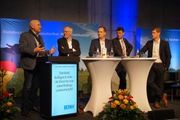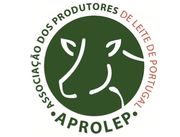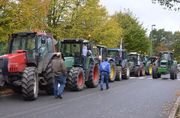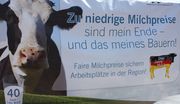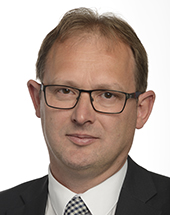EMB Newsletter February 2020
Newsletter as PDF
Contact
EMB - European Milk Board asbl
Rue de la Loi 155
B-1040 Bruxelles
Phone: +32 - 2808 - 1935
Fax: +32 - 2808 - 8265
Dear dairy farmers, dear interested parties,

At their press conference at the International Green Week in Berlin, the EMB Executive Committee presented solutions for environmentally just and socio-economically sustainable milk production in the EU.
The fact of the matter is that dairy farmers must rise to an ever-increasing number of demands, while they receive no economic compensation for the same. However, it is also fact that dairy farmers today have been pushed into a corner – by the policies that have led them there. And now policy-makers expect farmers to 'adapt'. The farmer protests, which have been highlighting these economic imbalances for many years now, are the logical consequence of an erroneous agricultural policy.
How can we get ourselves out of this quagmire? It is very clear that it begins with agricultural policy at EU level. We need a market policy with an appropriate framework to make fair prices a reality. A sound economic foundation is a must for the dairy sector. Thereafter, we can focus on new environmental and social conditions as well. It is important to state this clearly: we dairy farmers have been thinking about environmental protection for many years now and are already contributing towards this goal. However, the costs of additional environmental restrictions cannot be simply passed on to be borne by farmers!
The EMB has drawn up a paper that looks at both the socio-economic and environmental criteria for sustainable milk production in the EU. The creation of a crisis instrument that effectively prevents any kind of overproduction is an absolute must.
In this edition of the newsletter, you can read about some of the events held at the Green Week and the most recent activities. APROLEP, our newest member association who has been defending the interests of Portuguese dairy farmers since 2010, tells us a little bit about themselves. An interview with Dutch MEP Ruissen sheds some light on how the European Conservatives and Reformists group views the dairy sector.
In our 'Fair Milk' series, our colleagues from Luxembourg present their brand, which makes fair remuneration a reality for dairy farmers. A successful project: the cooperative meanwhile offers 13 different dairy products.
We hope you find this edition an interesting read!
Johannes Pfaller, member of the Executive Committee of the European Milk Board and spokesperson for the BDM Federal Advisory Committee
How can EU milk production be climate-friendly as well as socially and economically sustainable?
Events organised by the German dairy farmers' association BDM
APROLEP, the association of Portuguese dairy farmers
Belgian producers claim their space on supermarket shelves
The DBV sees "extremely stable" producer prices, the AbL sees "an existential threat to farmers"
“Make agriculture strong again!” – EMB interview with MEP Bert-Jan Ruissen
Fair Milk Luxembourg
Impressum
European Milk Board asbl
Rue de la Loi 155
B-1040 Bruxelles
Phone: +32 2808 1935
Fax: +32 2808 8265
E-Mail: office@europeanmilkboard.org
Website: http://www.europeanmilkboard.org


